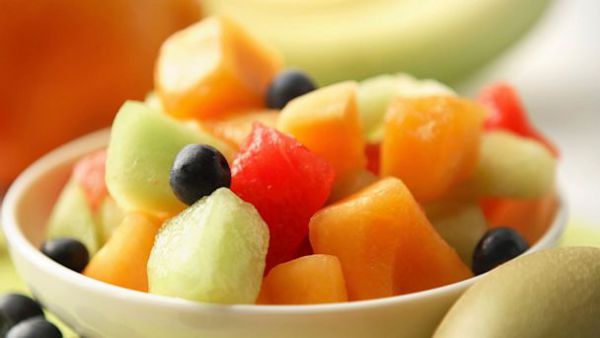
Does Eating Fruit Make You Gain Fat? – No, It Doesn’
Has anybody ever let you know that to get tore, you must kill soil grown foods?
I know numerous build contenders who totally cut soil grown foods from their nourishment arrangements, even months from a challenge, out of expect that apples and oranges will restrict the measure of fat they can lose – or even cause them to put on weight.
Where does this thinking originate from, and above all, would it say it is right?
What Is Fruit?
As per organic science (the investigation of plants) foods grown from the ground is a seed-bearing structure that creates from the ovary of a blooming plant. It is generally sweet. Vegetables, then again, are all other plant parts, for example, roots, leaves and stems.
In the connection of sustenance, certain “vegetables,” like eggplant and ringer peppers are really foods grown from the ground, and a few sustenances, for example, tomatoes, have properties of both products of the soil. For this article, I utilize the term products of the soil to portray what you likely consider when somebody says the statement tree grown foods (berries, pieces of fruit, papaya, and so on.), however actually talking avocados, cucumbers, and olives are all apples and oranges also.
Where Does The “Apples and oranges Makes You Fat” Idea Come From?
Numerous individuals who accept apples and oranges makes you fat stick to the standards of “broscience,” which Urban Dictionary precisely characterizes as “the overwhelming brand of thinking in getting huge rounds where the episodic reports of jacked fellas are viewed as more believable than exploratory exploration.” In this case, while listening to what others need to say is by and large a good thing, its essential to comprehend that hereditarily skilled or “aided” people frequently look the way they do despite their methodology, not on account of it.
Others accept the fructose (a sort of sugar found in products of the soil) reasons fat increase. A few studies recommend that fructose ingestion prompts insulin safety, hoisted blood cholesterol levels and expanded fat addition, particularly in the stomach area.1 Additionally, fructose brings down the measure of insulin discharged in light of dinners.
This thus brings down the coursing levels of the hormone leptin, which is in charge of expanding sentiments of completion and raises the craving advancing hormone ghrelin.2 This situation can prompt overabundance calorie utilization, which can result in fat addition.
A few studies demonstrate a relationship between drinks containing fructose (or high fructose corn syrup, which is not found in nature) and weight gain.3 4 However, there is great research that recommends it is the calories from the sugar and not the specific kind of sugar that is in charge of the weight gain.5 6
Also, foods grown from the ground contains generally low levels of fructose contrasted with sweetened refreshments. Case in point, a medium fruit contains around 13 grams of fructose7 and 90 calories. A 20-ounce Coke has 65 grams of sugar, about 50% of which is fructose, and 240 calories. (Furthermore, yes, the calories ought to be 260 , because of 4 calories for every gram of sugar. I couldn’t find a clarification for this disparity.)
In the event that Fruit Doesn’t Make You Fat, What Does?
Overabundance calories reason weight pick up. On the off chance that you consume a bigger number of calories than you smolder, you will put on weight regardless of where the calories originate from. So does soil grown foods make you fat? It can as in on the off chance that you consume excessively of it (or excessively of anything) you will put on weight.
On the off chance that you consume higher calorie foods grown from the ground like bananas you will be more inclined to put on weight than if you consume lower calorie products of the soil like strawberries.
Foods grown from the ground is stuffed with supplements, has a high water content that makes it filling, and contains fiber. With some restraint, foods grown from the ground is a fabulous decision as a sound wellspring of carbohydrates.
